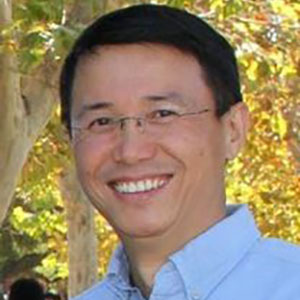For over 22 years, Jun Su held the role of senior engineering manager, leading projects and programs for
one of the world's largest tech companies. Among his most rewarding experiences was spearheading a
5G product development project, where his team developed an FPGA-based 5G modem and became the
first to showcase this groundbreaking technology—a milestone he is particularly proud of.
GRID Alternatives is a 501(c)(3) certified non-profit organization that brings together community
partners, volunteers and job trainees to implement solar power and energy efficiency for low-income
families, providing energy cost savings, valuable hands-on experience, and a source of clean, local
energy that benefits us all. Their mission to make clean energy and solar jobs accessible to underserved
communities deeply resonated with Jun.
He became a member of the operations team, which offers technical and operational support
throughout the organization. His first assignment was to coordinate the migration of files and data
between platforms, a task that required collaboration with nearly every department. This project
allowed him to leverage his project management skills while gaining a deep understanding of GRID’s
operations. After its successful completion, he was entrusted with several more projects, completing
four in total since then.
One notable project focused on analyzing the cost savings of solar and battery storage. This involved
managing complex data sets to compare current utility grid expenses with potential savings from solar and battery storage systems. The analysis highlighted how customers could increase savings by
integrating battery storage with solar panels. He automated the entire data analysis process, allowing
the team to efficiently generate, analyze, and present the data in a clear and accessible way for clients.
He also documented each step to ensure the process could be easily replicated by future teams—a
critical benefit for GRID, where limited resources made automation a key asset in streamlining
operations.
He also worked on a project to develop digital survey templates for pre- and post-installation
inspections, replacing the traditional paper-based system. This digital solution allows teams to perform
inspections more efficiently on mobile devices. Additionally, he meticulously documented each phase of
the template development process, creating a comprehensive guide for future reference and
development.
As the Fellowship nears its end, Jun feels a deep sense of pride and fulfillment. Contributing to GRID
Alternatives' mission, witnessing the tangible impact of his work on communities, and knowing that he
helped further the organization's goals gave him a strong sense of accomplishment. The knowledge that
he played a part in making renewable energy more accessible and empowering underserved
communities is something he carries with him long after the Fellowship.
Jun is very grateful for this opportunity – the Encore Fellowship has transformed how he envisions
retirement. Rather than seeing it as a time to wind down, he now views it as a new chapter full of
possibilities for continued impact, personal growth, and fulfillment. Whether through continued work in
the nonprofit sector, mentoring, consulting, or exploring new interests, the next steps in his journey are
likely to be guided by the insights and experiences he gained during the Fellowship.
